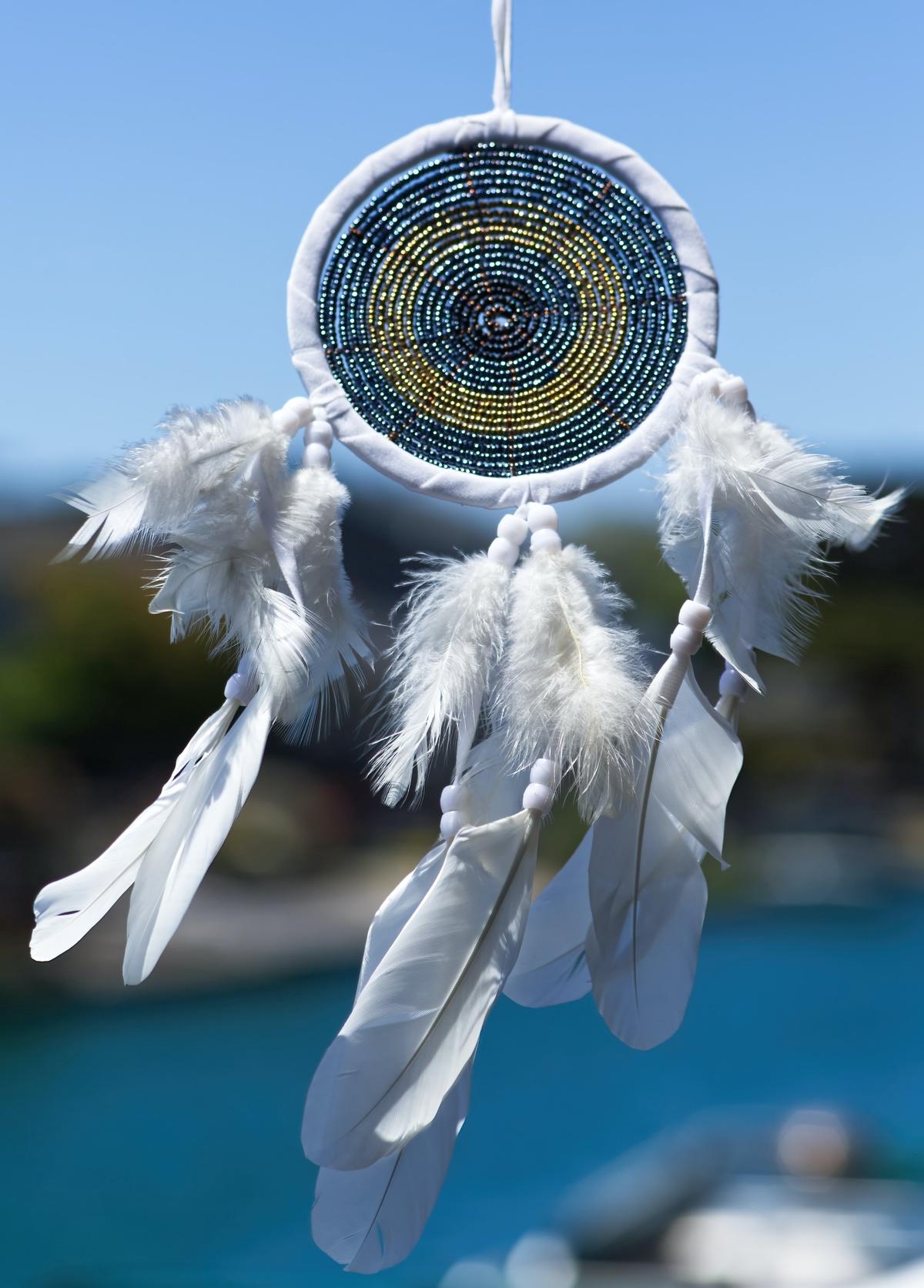Our dreams are the navigational compasses of our unconscious minds, often revealing profound insights about our fears, desires, and individual idiosyncrasies. Bird dreams – a universally experienced yet deeply personal phenomenon – are perceived as particularly potent symbols in the language of the unconscious. This essay delves into the rich tapestry of bird symbolism in dreams from an array of perspectives: the psychological, cultural, therapeutic and personal. We will journey through the fascinating interpretations by various psychologists, analyzing the potential symbolism of different bird species in our dreams. Concurrently, we’ll venture into the experiences of individuals who invite birds into their dreamscapes and examine the cultural lenses which different societies use to interpret these ethereal encounters.
Understanding Bird Symbolism in Dreams
Understanding Bird Symbolism in Dreams
Birds, as a collective symbol, typically represent freedom, transcendence, and spiritual enlightenment in the realm of dreams. With their ability to fly high in the sky, birds can symbolize a connection to the spiritual or divine world, while also embodying aspirations, thoughts, and ideas that have a lofty or high-reaching nature. The unconscious mind often uses images of birds to convey feelings or situations associated with these realms.
However, individual types of birds can have unique symbolic meanings rooted in shared cultural perceptions, historical and mythological associations, and characteristics of the bird species themselves. Renowned Swiss psychiatrist and psychoanalyst Carl Jung viewed these shared symbols, or archetypes, as fundamental components of the collective unconscious. Consequently, a dream featuring a bird could be the individual’s unconscious mind tapping into this collective symbolic language.
Common Birds Seen in Dreams and Their Meanings
One of the most frequently observed birds in dreams is the dove, often representing peace, tranquility, harmony, or spiritual love in the psychological landscape. If a dove appears in your dream, it may indicate a period of calming energy or an opportunity for reconciliation.
Eagles are another prevalent symbol in dreams, embodying power, freedom, and aspiration. When an eagle shows up in one’s dream, it can signify the individual’s strength, resilience, or spiritual growth. The individual might be harnessing their inner power or setting high-reaching goals for themselves.
The crow or raven, on the other hand, may symbolize wisdom, mystery, or transformation, considering their presence in many cultural and spiritual traditions as intelligent and mystic creatures. Seeing a raven or crow in your dream could signify a phase of self-transformation, or it may be alerting you to a mystery or hidden wisdom in your life.
Parrots, commonly dreamt of, are usually associated with communication and mimicry due to their ability to mimic human speech. Parrots appearing in dreams could be symbolizing repetitive patterns or habits in your waking life, or it could mean you are echoing other people’s thoughts and not expressing your own.
Exploring the Psychology of Bird Dreams
The world of dreams is an intriguing embodiment of our unconscious mind. Famed psychoanalyst Sigmund Freud recommended that dreams may serve as channels through which our unconscious mind broadcasts thoughts, desires, and fears that we’ve withheld in our conscious states.
Looking at bird dreams under the microscope of analytical psychology, they can provide valuable cues about our present mental state and can pinpoint areas that may require growth or transformation. For example, a dream featuring a bird trapped in a cage might denote feelings of being hemmed in or controlled, thereby calling for liberation or breaking free from existing constraints.
Bird dreams can also unveal our outlooks on independence, spirituality, and personal ambitions, considering the prevalent bird symbols related to these notions. Nonetheless, every dream symbol, including bird symbolism, is also unique to the dreamer. Factors such as the dreamer’s individual experiences, emotional connection with birds, and the dream’s context play a pivotal role in its interpretation, enhancing, or possibly superseding the commonly assigned meanings. Therefore, bird dreams are complex psychological experiences mirroring both universal archetypes and individual associations.

Psychological Interpretations of Bird Dreams
Interpretation of Dreams in Psychology
Various cultures and societies in history have searched for the meanings embedded in dreams, in the belief that they may contain disguised messages, prophecies, or introspections into one’s psychological state. From a psychological standpoint, dreams serve as a window into our unconscious mind. Renowned psychologists like Sigmund Freud and Carl Jung dedicated substantial parts of their careers to understanding and interpreting dreams. Speaking specifically of bird dreams, they are fairly common and entail numerous possible interpretations based on the context, the species of the bird, and other influencing factors.
Sigmund Freud and Bird Dreams
Sigmund Freud, the founder of psychoanalysis, asserted that dreams serve as a doorway to our subconscious, where suppressed desires, anxieties, and feelings are stored. According to him, even seemingly absurd or vague dream images may have potent meanings when deciphered correctly. To Freud, birds typically symbolize freedom due to their ability to fly. Conversely, bird dreams might also signify feelings of entrapment or confinement, particularly if the dream involves birds trapped in a cage or similar confines. Therefore, a person dreaming about birds might be grappling with feelings of longing for freedom or an unconscious sense of restraint or limitation.
Carl Jung and Bird Dreams
Unlike Freud, Carl Jung viewed dreams as a means for the unconscious mind to offer solutions to problems faced in the waking state. For Jung, bird dreams could symbolize various aspects, depending upon the specific bird species involved in the dream. For instance, owls might represent wisdom, peacocks could signify pride, and eagles might embody power or independence. If someone dreams of a specific type of bird, it could be representative of these associated qualities. More broadly, Jung believed that birds, due to their capacity to fly and navigate the skies, represent transcendence, freedom, or aspiration.
Contemporary Psychological Interpretations of Bird Dreams
Continuing from Freud and Jung’s theories, contemporary psychology views bird dreams as representations of individual emotional states, personal ambitions, or current life circumstances. For example, birds flying high in the sky could reflect feelings of freedom, aspirations, or a desire for spiritual or intellectual growth. A dreaming of feeding birds could indicate the nurturing aspect of the dreamer, while seeing injured or dead birds might relate to feelings of despair, disillusion, or fear.
The Symbolism of Bird Species in Dreams
Different bird species in dreams can command nuanced interpretations. For instance, dreaming about a dove might signal inner peace or a longing for tranquility, while a crow might be considered a harbinger of change or transformation, possibly even suggestive of death or an end. Dreaming of a raven could symbolize mystery, death, or secrets due to its dark and enigmatic nature. Robins, known for their bright red breasts, are positively associated with vibrancy, renewed energy, or a fresh start, particularly heralding the arrival of spring in many cultures.
Introduction to Bird Dreams Psychology
Dreams involving birds can carry various interpretations depending on the context, the type of bird, and different psychological theories involved in dream analysis. These dreams can often symbolize an individual’s subconscious thoughts, shedding light on emotions and aspirations.
Personal Experiences & Dream Diaries
The Complexity of Bird Symbolism in Dreams
In the vast landscape of dreams, birds have consistently emerged as symbols across cultures and they are interpreted in many different ways depending on personal experiences and unique circumstances. Birds can signify a multitude of aspects such as freedom, transcendence, aspirations, and communication. Examining such dreams closely, one can see an interplay of cultural myths, symbols and the dreamer’s personal relationship and associations with birds.
Anecdotal Evidence: Elements Influencing Bird Symbolism
Several factors from personal circumstances can influence the symbolism of birds in an individual’s dreams. For example, someone who has grown up in a household with pet birds might associate birds with companionship or familial comfort, resulting in dreams where birds play a nurturing or friendly role.
On the other hand, a professional birdwatcher or ornithologist might have dreams about birds that are more analytical in nature, reflecting their conscious preoccupations. These dreams might feature observing bird behaviors or identifying different species, and might be a portal to the dreamer’s subconscious ideas about knowledge, search, and exploration.
Exploration of Personal Dream Journals
Detailed exploration of personal dream journals has been an important tool to understand the plasticity and diversity of bird symbolism. For instance, one individual documented frequent dreams about canaries over several years. On a superficial level, these canary dreams appeared to reflect their historical association with miners, representing warnings or danger. However, further analysis uncovered that this dreamer had an early childhood experience of losing a pet canary, and these dreams appeared around times of personal loss or anxiety, indicating that the canary served as a symbol of lost innocence or unheeded warnings.
Another dream journal documented recurring dreams of peacocks, which traditionally symbolize beauty and pride. For this dreamer, the peacock seemed correlated with times of high professional achievement, and was seen as a symbol of personal vanity that cautioned against overconfidence.
Psychology of Bird Dreams
Psychologically, bird dreams often express our subconscious perceptions and emotional states. Whether they represent the dreamer’s desire for freedom, paradigm shifts, spiritual experiences, personal growth or forecasts of future events, the interpretation depends largely on the context of the dreamer’s waking life and personal associations with birds.
In psychoanalysis, birds are often viewed as symbols related to the anima (the female principle) or the self. They can thus represent aspiration, thoughts, ideas or hopes. For individuals undergoing therapy or self-reflection, recording and analyzing bird dreams can be a helpful path towards understanding their personal anxieties, motivations, and aspirations.
Role of Birds in Dreams Across Cultures
While personal experiences significantly shape the dream symbolism of birds, cultural context also plays an essential role. For example, in certain cultures, dreaming of specific birds like doves or eagles might have deep-rooted religious or spiritual implications. In contrast, in urban cultures, birds like pigeons might symbolize mundane, everyday life or unwanted interference.
The realm of dream analysis, particularly concerning bird dreams, serves as a fertile ground for exploration into personal growth and self-understanding. Uniting various factors including individual past experiences, personal associations, cultural backgrounds, and psychological principles, it generates a holistic understanding of such dreams. Each dream is a multi-dimensional tapestry that provides significant insights into our psyche.

Cultural Aspects of Bird Dreams
Delving into Cultural Meanings of Bird Dreams
The significance of bird dreams is deeply rooted in various cultural, spiritual, religious, and folkloric contexts, and it varies significantly across different cultures. In several societies, the appearance of birds in dreams serves as an indication of forthcoming events or divine interventions, given their usual representation as spiritual messengers or predictors of omens.
For instance, birds are regarded as divine messengers by many Native American tribes, bestowed with the ability to transcend celestial boundaries. Hence, their presence in dreams is perceived as sacred communication from the spiritual realm. However, the interpretations may differ based on the specific bird species – eagles usually represent courage and strength, while ravens indicate magic and transformation.
In a similar vein, in Christianity, birds such as doves and sparrows hold significant biblical symbolism, representing peace, devotion, and divine care, respectively. Consequently, dreams featuring these birds may be interpreted as peaceful divine interventions or experiences of divine protection.
The Chinese folklore, on the other hand, associate birds, especially phoenixes, with good harmony and luck. Thus, dreams involving birds are typically seen as promising prognostications of prosperity and successful relationships.
Psychological Approach to Bird Dreams
From a psychological perspective, bird dreams can bear a multitude of meanings, integral to the individual dreamer’s personal circumstances and emotional state. Building upon Carl Jung’s theory of dream interpretation, birds in dreams could symbolize the dreamer’s aspirations, thoughts, or even a desire for freedom, rooted in the bird’s capacity to fly.
Moreover, Sigmund Freud’s psychoanalytic interpretation suggests that birds could represent sexual impulses considering their links to fertility and motherhood in several cultural mythologies.
Research Findings and Observations
Various studies on dream interpretation have shown that individual understanding and interpretation of bird dreams can be affected significantly by personal cultural beliefs and exposure. A research conducted by Deirdre Barrett, Ph.D., a Psychologist at Harvard Medical School, documented that individuals who were more culturally inclined towards viewing birds as messengers of the divine bore a higher likelihood to find divine meanings in their bird dreams compared to those without such cultural exposure.
In recent years, researchers have also observed an interplay between cultural and psychological factors, utilizing Cognitive Experiential Theory. It posits that cultural beliefs significantly shape how individuals process information, including the interpretation of dreams. This ties back to the understanding that individual’s interpretations of bird dreams would be influenced by their cultural identity and personal psychology in tandem.
Dreaming of Birds: A Personal Perspective
The interpretation of dreams about birds rests largely on personal context, colored by individual emotional states and personal experiences. As an example, it is likely that someone with an interest in nature conservation will experience bird dreams differently to someone who exhibits ornithophobia.
This individualistic perspective emphasizes the crucial role of personal introspection and self-awareness when interpreting dreams. Factors to consider would include emotional reactions during the dream, current life situations, and the particular types of birds that occur in the dream scenario.

Photo by bullterriere on Unsplash
Therapeutic Approaches to Bird Dreams
Exploring Bird Dreams through a Therapeutic Lens
Dreams that involve birds often carry deep symbolic implications. Birds are represented in various cultures and individual belief systems as symbols of freedom, spiritual consciousness, or even as harbingers of future events. Conversely, they can signify feelings of being ‘trapped’ or limited. This rich symbolism offers a valuable tool for therapeutic conversations, promoting individuals to delve into their personal emotions, conflicts, events, or aspirations.
Methods to Interpret Bird Dreams
Psychotherapeutic techniques may be introduced to unravel the meaning of recurrent bird dreams. Psychoanalytic therapy developed by Sigmund Freud and Carl Jung encourages the exploration of unconscious thoughts and perceptions. Here, bird dreams can be a representation of unconscious desires or conflicts, with the specific type and action of the bird offering further insights.
Cognitive-Behavioral Therapy
The Cognitive-Behavioral Therapy (CBT) approach can also be effective in evaluating bird dreams. Since CBT is focused on current thoughts and behaviors, it assists in understanding how one’s present mental state can shape our dreams. Through CBT, a therapist may help a client connect their bird dreams to their waking life experiences, fears, or aspirations.
Role Play Therapy and Bird Dreams
Role play therapy might be another technique used by therapists. In this therapy, the individual is asked to enact the bird dream, playing both themselves and the bird. This encourages a reflection on personal emotions and can provide new insights into the dream’s meaning or significance.
Using Dream Journals for Therapy
A common approach to understanding dreams is maintaining a dream journal, where individuals document the details of their dreams immediately upon waking. A dream journal facilitates a rigorous examination of recurring bird dreams and helps to spot patterns or persistent themes.
Dreams as Therapeutic Tools
As they often contain subconscious thoughts and emotions, dreams are valuable resources for therapy. In essence, bird dreams, like other types of dreams, may potentially highlight areas of concern, unresolved issues, or personal growth and aspirations. By unpacking the details and symbolism of these dreams, individuals can gain a deeper understanding of themselves, thereby offering therapeutic benefits.
Dream Therapy and Self-Reflection
Adopting the therapy methods suggested above to understand bird dreams can stimulate self-reflection, enabling individuals to confront unresolved issues or better comprehend their daily experiences and emotions. This can be a step toward personal development and greater mental well-being.
Therapy for Distressing Bird Dreams
For individuals distressed by their bird dreams, cognitive restructuring, a component of CBT, can help modify thought processes associated with these dreams, reducing fear or anxiety. Exposure therapy might also be useful, allowing individuals to gradually confront and overcome the dread associated with their distressing bird dreams.
In conclusion, the psychological interpretation of bird dreams and the subsequent therapeutic approaches towards understanding and processing these dreams foster self-awareness and emotional intelligence, and possibly, relieve distress the dreams might cause. Besides, examining these dreams through the lens of different therapeutic approaches can shed light on the intricacies of human psychology.

From a tiny sparrow to a majestic eagle, every bird we encounter in our nocturnal narratives has the potential to affect us profoundly. We dove deep into the countless ways that bird dreams can be a wellspring of insight, a mirror for our pressing concerns or the thermostat of our most seeking desires. Irrespective of whether viewed through the lens of renowned psychologists, or perceived through the spectrum of personal experiences or varied cultural interpretations, bird dreams are undeniably rich with meaning. Dreams, after all, are the language that seeks to bridge our conscious and unconscious selves. We saw how therapeutic approaches might assist those grappling with these dreams. Dreams, especially those of birds, are like flights of fantasy that enable us to wander through the labyrinth of our psyche, only to find ourselves anew each time. So, the next time you dream of a bird, remember, something deep within you is trying to take flight – heed its call.
